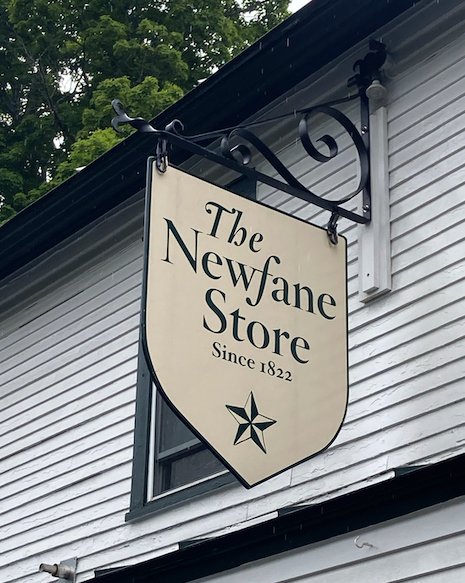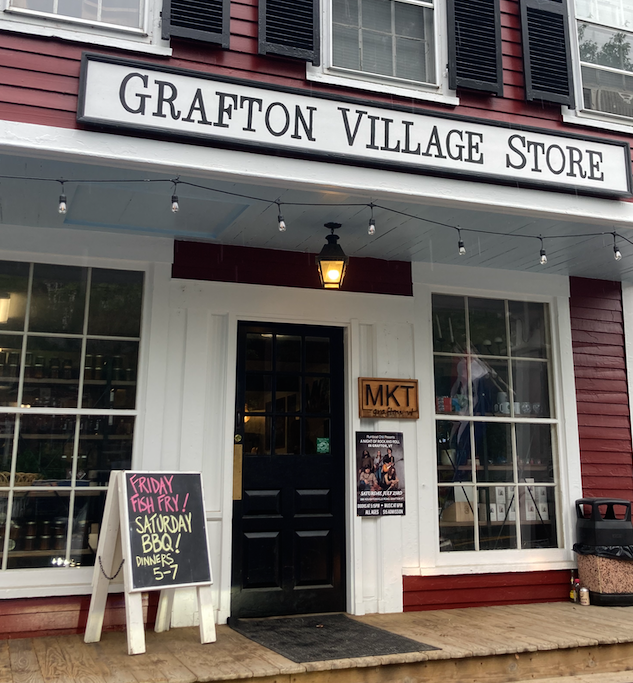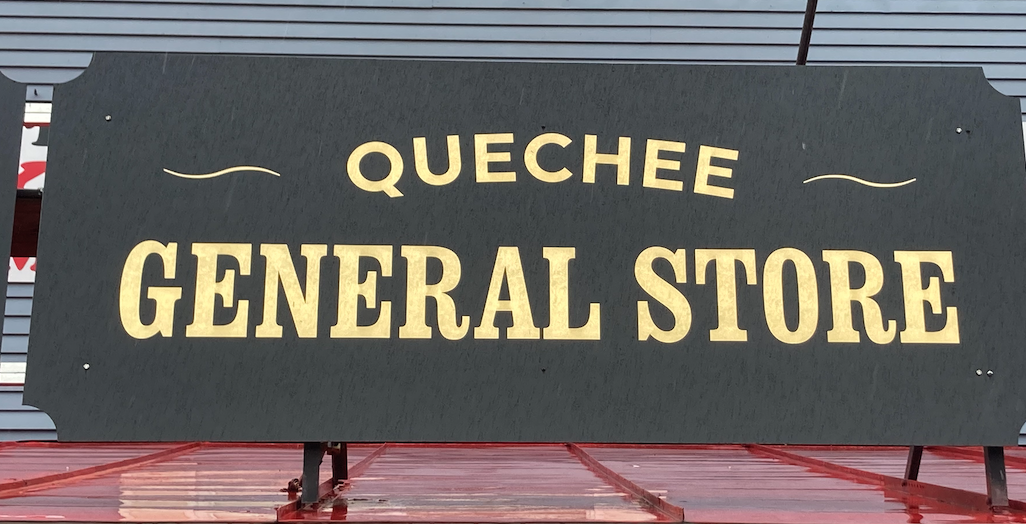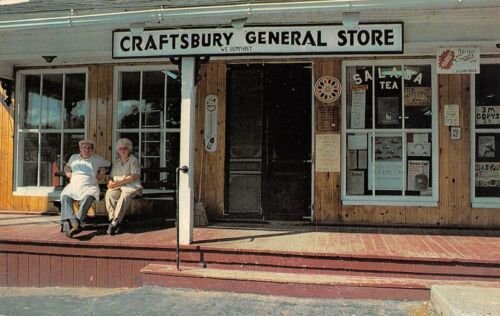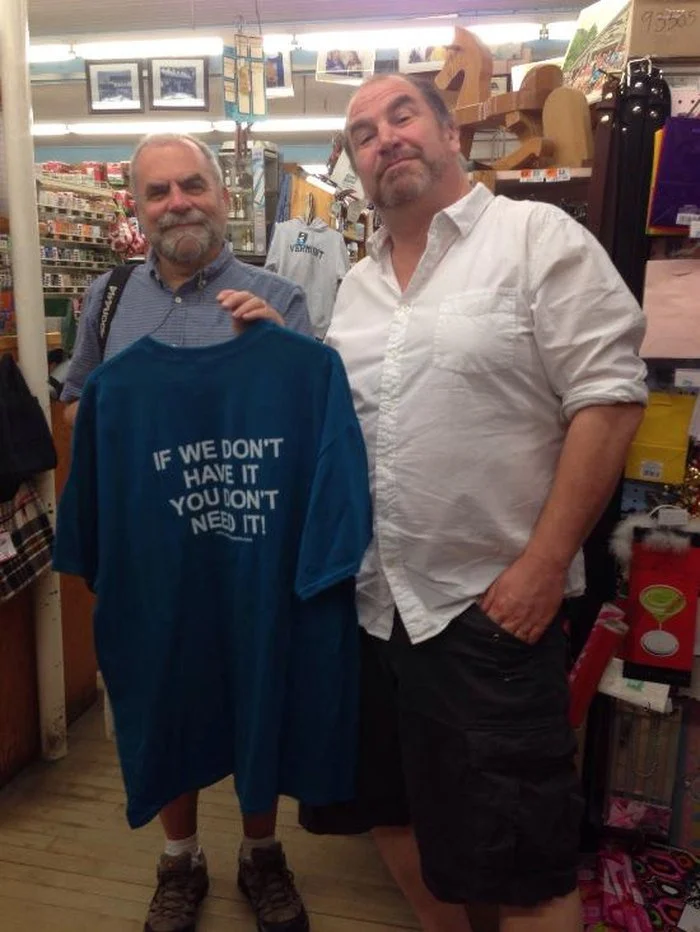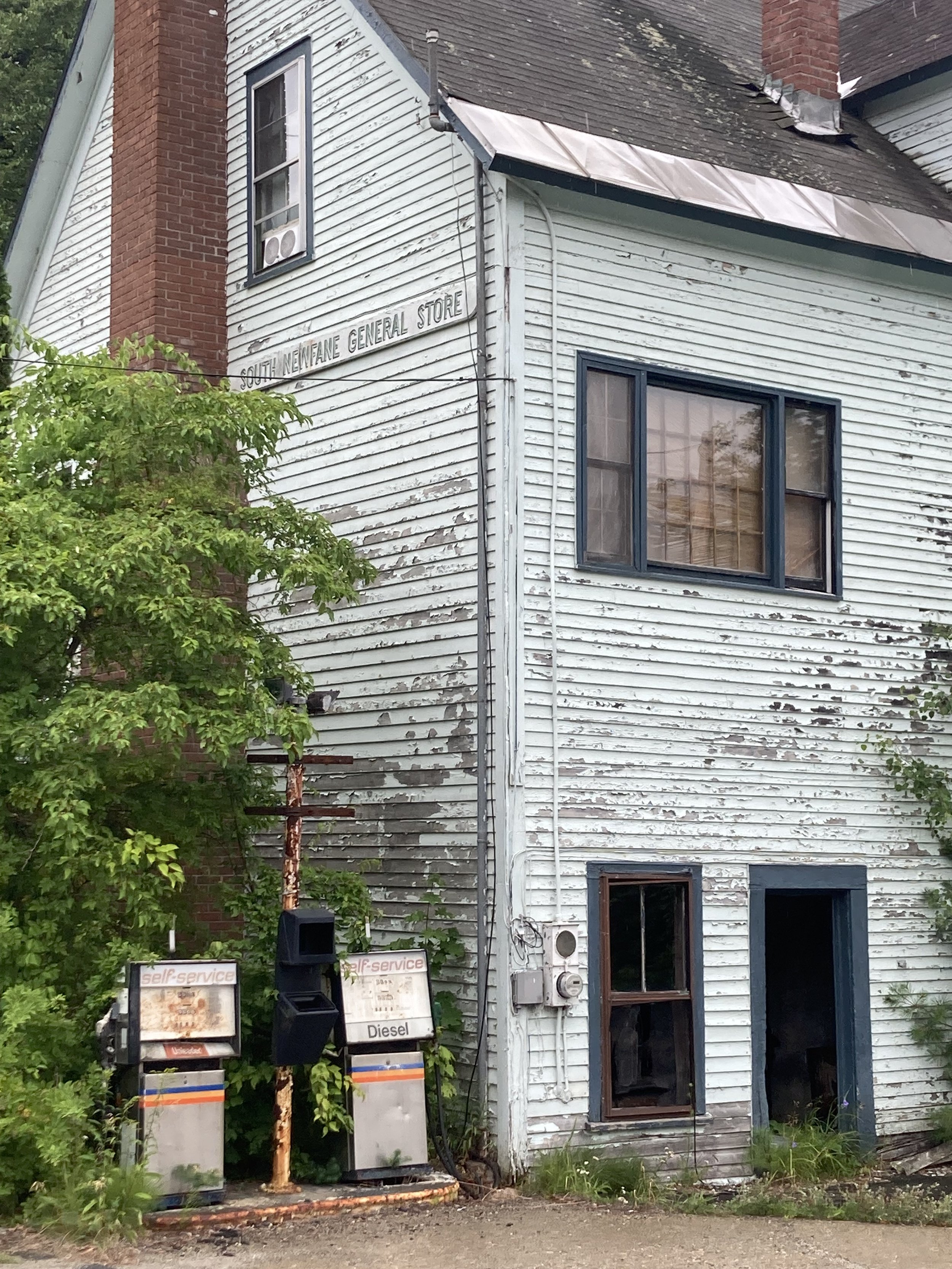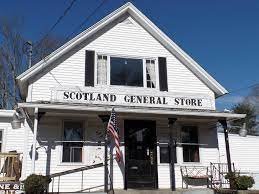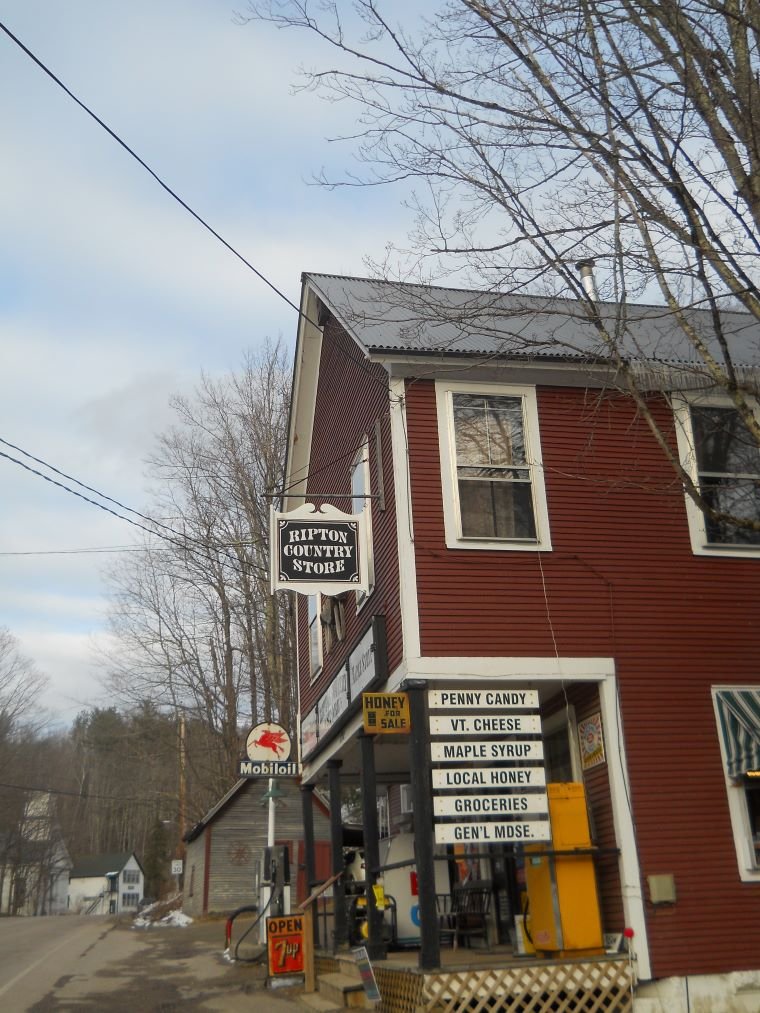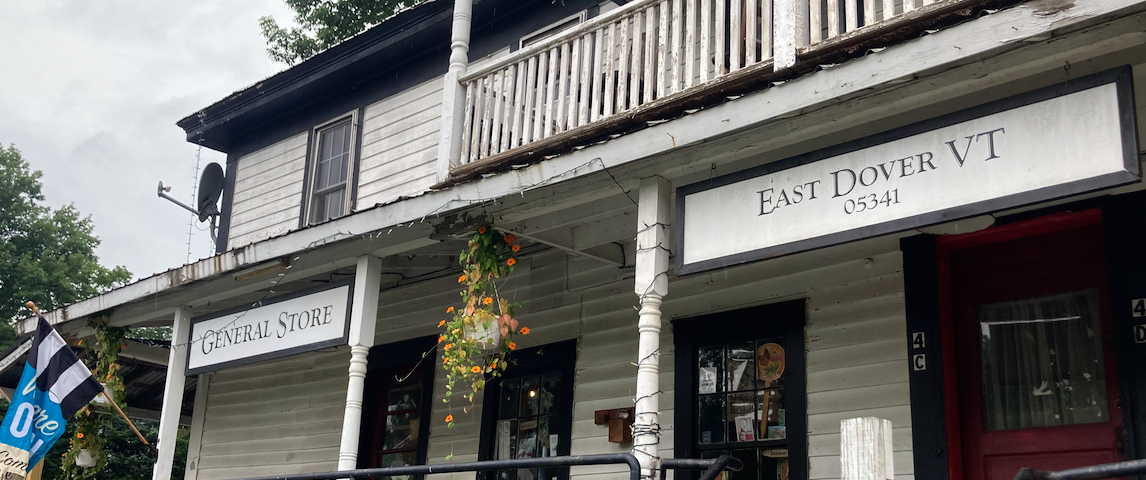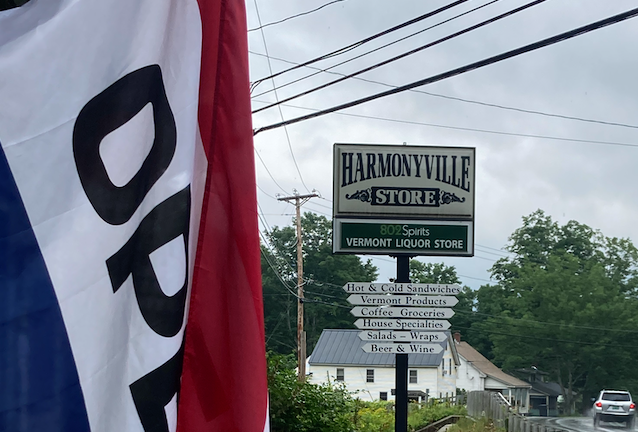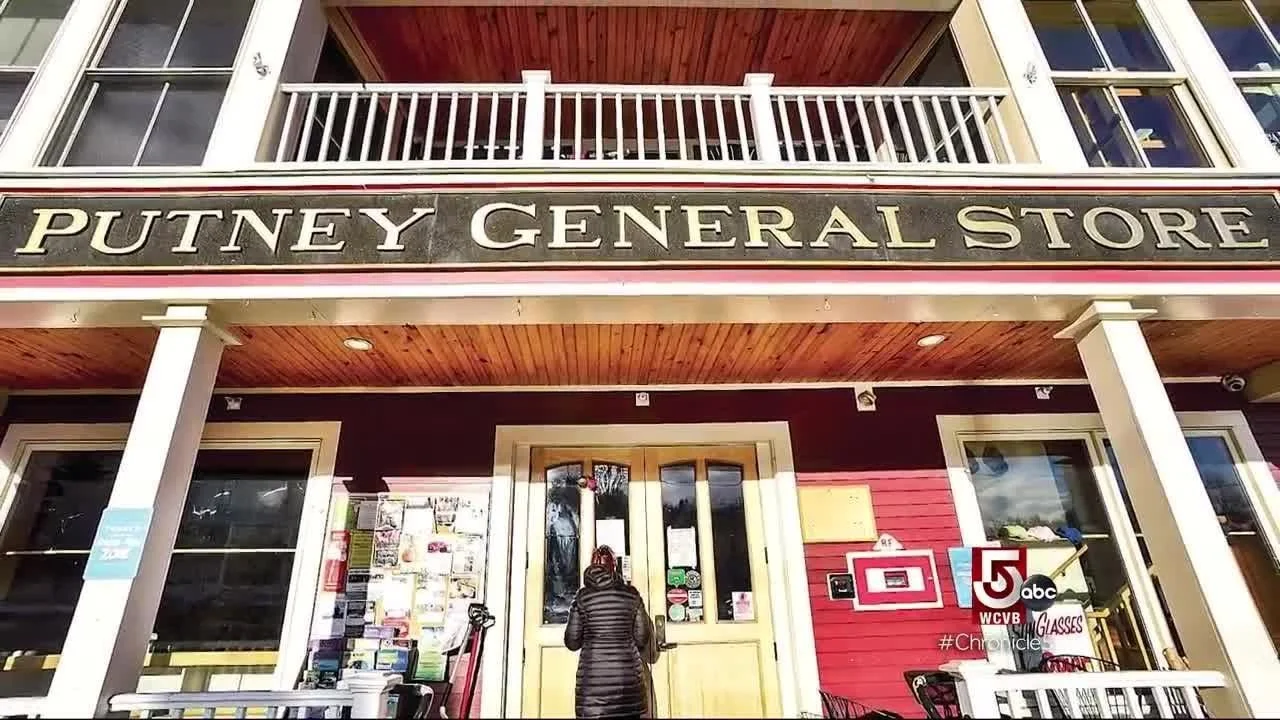EIGHT GENERAL STORES IN VERMONT
JACKSONVILLE, VT — ANY OLD MORNING — Coming in for coffee, a can of beans, or just a chat, the trickle begins at 8 a.m. Behind the counter, Amber Goodnow and her daughter Elizabeth serve as cashiers, shelf stockers, greeters.
“Hi, Rick.”
“Rain today.”
“Looks like.”
In Jacksonville (pop. 252) as in other Vermont hamlets, the ingredients are homespun: A church or two. A volunteer fire department. Post office. Historical Society. A dozen houses with creaky old porches. And one general store.
Since the late 1700s, Vermont’s general stores have been the hub of community and the seat of one-stop shopping. The Jacksonville General Store stocks the basics — milk, eggs, coffee, Ben & Jerry’s. . . But the store also sells: ping-pong balls, deodorant, rubbing alcohol, marshmallows, lemon juice, Worcestershire sauce, asparagus, and condoms. The unofficial motto of Vermont’s general stores comes from Dan & Whit’s Store in Norwich. “If we don’t have it, you don’t need it.”
Time was when America was laced with “mom and pop” stores, but most have vanished, victims of 7-11, etc. But in Vermont, where zoning limits billboards and big box stores, Moms and Pops are surviving, and adapting to the age of Amazon.com.
“It’s no longer just ‘give me that can of beans,’” says Tim Stys, owner of the Readsboro General Store. “That doesn’t work anymore.”
Last year, when Stys and his wife moved from NYC to Readsboro (pop. 309), they knew just what the old store needed — a chef trained at the Culinary Institute of America. “Excellent food is the one thing people still travel for,” Stys said. “Everything else is available elsewhere.”
But personality is another draw, which is why the Readsboro store blends Vermont’s many cultures. New Age books sit beside bags of charcoal. There are toys and greeting cards, wine and local craft beers. And the basics — milk, eggs, Ben & Jerry’s. . .
“You have to be inviting and not be fake about it,” Stys says before going back to lunch prep. “That’s what makes a country store.”
But a winding drive through the Green Mountains reveals the ghosts of stores that didn’t modernize, didn’t make it. “It’s hard when your supplier sells you a gallon of milk for six dollars,” Amber Goodnow said, “and you have to sell it for seven to stay in business.”
No matter how much Vermonters wish it could be forever fall here, and forever “back in the day,” the modern economy ignores state lines. So even in towns too small for a 7-11, general stores must compete with online retailers and local upstarts with countrified names. River Valley Market. Green Mountain Co-op. Mini-marts galore. How to stand out?
Be friendly. Be general. Be Vermont. Which means striking a balance between old and new. Local crafts and craft beers, sure, but to draw more than locals, you need gourmet sandwiches, sunglasses and sunscreen, and in the Newfane General Store, a local paper but also the Wall Street Journal.
David Hull learned these lessons well. Last year, Hull and his wife revived Newfane’s dark and forbidding general store. “It was a tired place,” said Newfaner Rhonda Calhoun, eating breakfast with friends. “It’s much more alive now. Every day there’s some new Facebook post.”
When Hull, a former teacher, bought the old store, his first priority was a diverse menu. (Today’s Lunch Special: Coconut/lime Rice Noodles with Summer Veggies.) Next, Hull “put things back on the shelf that hadn’t been there in a long time.”
Though the Newfane store has gift cards, crafts, books by local authors, it still sells the goods that made general stores general. Spam and Bisquick. Jell-O. Bait for fishermen, boot laces for workers.
“I wanted to offer stuff for locals and not be too fancy pants,” Hull said. “Some general stores now are over the top. It feels like you’re in Manhattan. We didn’t want to be the people who came from elsewhere and changed everything.”
Further north, Hull’s “Manhattan” comment echoes. The Grafton Village Store was once “general” but tourism and affluence led owners to can the SPAM in favor of pink sea salt, Tikka Masala curry, and wine at up to $60 bucks a bottle. I grab a sandwich and move on.
North to Singleton’s in Proctorville, a sprawling market that seems to blend a modern mini-mart with a hunting store. And onwards to the Quechee General Store which, being near the touristy Quechee Gorge, might as well be a gift shop in a national park.
While it’s easy to judge and move on, general stores are simply seeking survival strategies. Such strategies are as varied as the towns themselves. At Dan and Whit’s in Norwich, the saving grace stepped in off the street. Last December, when short staffing nearly closed the store, in the family for generations, four dozen residents worked shifts to keep Dan and Whit’s open, and gave their wages to charity.
Elsewhere in Vermont, strategies include co-operative ownership, upping the beer and wine inventory, and attracting another “flatlander” to toil 12-16 hour days and give the old store a boost. Will it work?
“General stores can survive,” says David Hull in Newfane, “but they won’t be like the used to be. They are changing but there will always be the need.”
Downriver at the Putney General Store, founded in 1796, customer Aria Carter agrees. Along with two-plus centuries, the Putney Store has survived two fires, and numerous changes of ownership. But the old store keeps going.
“It’s the most convenient place in town,” said Carter, picking through a selection of sauces and spices. “It’s funny how these general stores seem to always carry the right things.”



